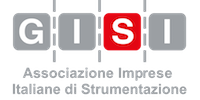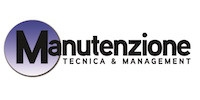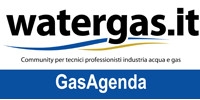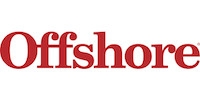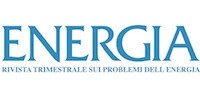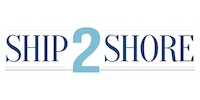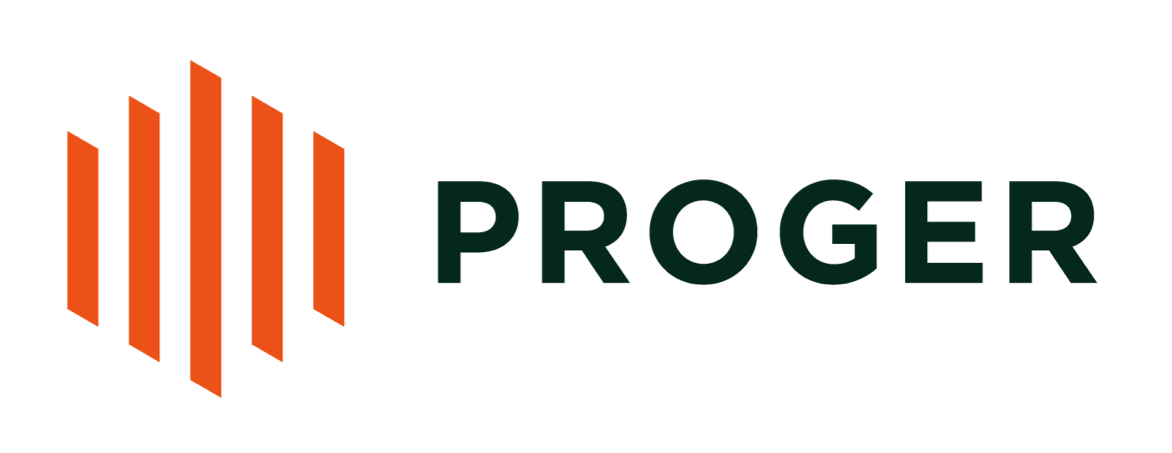DATA COLLECTION POLICY
Dear user, Thank you for visiting our site.
IES Srl / OMC Scrl have always paid great attention to the issues of protection of personal data processed by it, not only because the subject of specific legislation (Legislative Decree. N. 196/03: Code for the protection of personal data), but mainly because the Protection of data as an essential asset of our company. It's for these reasons that we constantly strive to provide our users an Internet experience that fully respects and protects their privacy.
Introduction
IES Srl / OMC Scrl need to gather and use certain information about individuals.
These can include customers, suppliers, business contacts, employees and other people the organisation has a relationship with or may need to contact.
This policy describes how this personal data must be collected, handled and stored to meet the company’s data protection standards — and to comply with the law.
Why this policy exists
This data protection policy ensures IES Srl / OMC Scrl:
• Complies with data protection law and follow good practice
• Protects the rights of staff, customers and partners
• Is open about how it stores and processes individuals’ data
• Protects itself from the risks of a data breach
Data protection law
The Data Protection art. 29 of the Directive n. 95/46 / EC, adopted on 17 May 2001 describes how organisations — includingIES Srl / OMC Scrl — must collect, handle and store personal information.
These rules apply regardless of whether data is stored electronically, on paper or on other materials.
To comply with the law, personal information must be collected and used fairly, stored safely and not disclosed unlawfully.
The Data Protection Act is underpinned by eight important principles. These say that personal data must:
1. Be processed fairly and lawfully
2. Be obtained only for specific, lawful purposes
3. Be adequate, relevant and not excessive
4. Be accurate and kept up to date
5. Not be held for any longer than necessary
6. Processed in accordance with the rights of data subjects
7. Be protected in appropriate ways
8. Can be transferred to third party which ensures an adequate level of protection
People, risks and responsibilities Policy scope
This policy applies to:
• The head office of IES Srl / OMC Scrl
• All branches of IES Srl / OMC Scrl
• All staff and volunteers of IES Srl / OMC Scrl
• All contractors, suppliers and other people working on behalf of IES Srl / OMC Scrl
It applies to all data that the company holds relating to identifiable individuals, even if that information technically falls outside of the Data Protection Act 29 of the Directive n. 95/46 / EC, adopted on 17 May 2001. This can include:
• Names of individuals
• Postal addresses
• Email addresses
• Telephone numbers
• …plus any other information relating to individuals
Data protection risks
This policy helps to protect IES Srl / OMC Scrl from some very real data security risks, including:
• Breaches of confidentiality. For instance, information being given out inappropriately.
• Failing to offer choice. For instance, all individuals should be free to choose how the company uses data relating to them.
• Reputational damage. For instance, the company could suffer if hackers successfully gained access to sensitive data.
Responsibilities
Everyone who works for or with IES Srl / OMC Scrl has some responsibility for ensuring data is collected, stored and handled appropriately.
Each team that handles personal data must ensure that it is handled and processed in line with this policy and data protection principles.
However, these people have key areas of responsibility:
• The board of directors is ultimately responsible for ensuring that IES Srl / OMC Scrl meets its legal obligations.
• IES Srl / OMC Scrl is responsible for:
o Keeping the board updated about data protection responsibilities, risks and issues.
o Reviewing all data protection procedures and related policies, in line with an agreed schedule.
o Arranging data protection training and advice for the people covered by this policy.
o Handling data protection questions from staff and anyone else covered by this policy.
o Dealing with requests from individuals to see the data IES SRL holds about them (also called ‘subject access requests’).
o Checking and approving any contracts or agreements with third parties that may handle the company’s sensitive data.
• IES Srl / OMC Scrl is responsible for:
o Ensuring all systems, services and equipment used for storing data meet acceptable security standards.
o Performing regular checks and scans to ensure security hardware and software is functioning properly.
o Evaluating any third-‐party services the company is considering using to store or process data. For instance, cloud computing services.
• IES Srl / OMC Scrl is responsible for:
o Approving any data protection statements attached to communications such as emails and letters.
o Addressing any data protection queries from journalists or media outlets like newspapers.
o Where necessary, working with other staff to ensure marketing initiatives abide by data protection principles.
General staff guidelines
• The only people able to access data covered by this policy should be those who need it for their work.
• Data should not be shared informally. When access to confidential information is required, employees can request it from their line managers.
• IES Srl / OMC Scrl will provide training to all employees to help them understand their responsibilities when handling data.
• Employees should keep all data secure, by taking sensible precautions and following the guidelines below.
• In particular, strong passwords must be used and they should never be shared.
• Personal data should not be disclosed to unauthorised people, either within the company or externally.
• Data should be regularly reviewed and updated if it is found to be out of date. If no longer required, it should be deleted and disposed of.
• Employees should request help from their line manager or the data protection officer if they are unsure about any aspect of data protection.
Data storage
These rules describe how and where data should be safely stored. Questions about storing data safely can be directed to the IT manager or data controller.
When data is stored on paper, it should be kept in a secure place where unauthorised people cannot see it.
These guidelines also apply to data that is usually stored electronically but has been printed out for some reason:
• When not required, the paper or files should be kept in a locked drawer or filing cabinet.
• Employees should make sure paper and printouts are not left where unauthorised people could see them, like on a printer.
• Data printouts should be shredded and disposed of securely when no longer required.
When data is stored electronically, it must be protected from unauthorised access, accidental deletion and malicious hacking attempts:
• Data should be protected by strong passwords that are changed regularly and never shared between employees.
• If data is stored on removable media (like a CD or DVD), these should be kept locked away securely when not being used.
• Data should only be stored on designated drives and servers, and should only be uploaded to an approved cloud computing services.
• Servers containing personal data should be sited in a secure location, away from general office space.
• Data should be backed up frequently. Those backups should be tested regularly, in line with the company’s standard backup procedures.
• Data should never be saved directly to laptops or other mobile devices like tablets or smart phones.
• All servers and computers containing data should be protected by approved security software and a firewall.
Data use
Personal data is of no value to IES Srl / OMC Scrl unless the business can make use of it. However, it is when personal data is accessed and used that it can be at the greatest risk of loss, corruption or theft:
• When working with personal data, employees should ensure the screens of their computers are always locked when left unattended.
• Personal data should not be shared informally. In particular, it should never be sent by email, as this form of communication is not secure.
• Data must be encrypted before being transferred electronically. The IT manager can explain how to send data to authorised external contacts.
• Personal data should never be transferred outside of the European Economic Area.
• Employees should not save copies of personal data to their own computers.
Always access and update the central copy of any data.
Data accuracy
The law requires IES Srl / OMC Scrl to take reasonable steps to ensure data is kept accurate and up to date.
The more important it is that the personal data is accurate, the greater the effort IES Srl / OMC Scrl should put into ensuring its accuracy.
It is the responsibility of all employees who work with data to take reasonable steps to ensure it is kept as accurate and up to date as possible.
• Data will be held in as few places as necessary. Staff should not create any unnecessary additional data sets.
• Staff should take every opportunity to ensure data is updated. For instance, by confirming a customer’s details when they call.
• IES Srl / OMC Scrl will make it easy for data subjects to update the information IES Srl / OMC Scrl holds about them. For instance, via the company website.
• Data should be updated as inaccuracies are discovered. For instance, if a customer can no longer be reached on their stored telephone number, it should be removed from the database.
• It is the marketing manager’s responsibility to ensure marketing databases are checked against industry suppression files every six months.
Subject access requests
All individuals who are the subject of personal data held by IES Srl / OMC Scrl are entitled to:
• Ask what information the company holds about them and why.
• Ask how to gain access to it.
• Be informed how to keep it up to date.
• Be informed how the company is meeting its data protection obligations.
If an individual contacts the company requesting this information, this is called a subject access request.
Subject access requests from individuals should be made by email, addressed to the data controller at ies@ies.co.it. The data controller can supply a standard request form, although individuals do not have to use this.
The data controller will always verify the identity of anyone making a subject access request before handing over any information.
Disclosing data for other reasons
In certain circumstances, the Data Protection Act allows personal data to be disclosed to law enforcement agencies without the consent of the data subject.
Under these circumstances, IES Srl / OMC Scrl will disclose requested data. However, the data controller will ensure the request is legitimate, seeking assistance from the board and from the company’s legal advisers where necessary.
Providing information
IES Srl / OMC Scrl aim to ensure that individuals are aware that their data is being processed, and that they understand:
• How the data is being used
• How to exercise their rights
To these ends, the company has a privacy statement, setting out how data relating to individuals is used by the company.
PRIVACY POLICY
Dear user, Thank you for visiting our site.
IES Srl / OMC Scrl have always paid great attention to the issues of protection of personal data processed by it, not only because the subject of specific legislation (Legislative Decree. N. 196/03: Code for the protection of personal data), but mainly because the Protection of data as an essential asset of our company. It's for these reasons that we constantly strive to provide our users an Internet experience that fully respects and protects their privacy.
What we collect
We may collect the following information:
• Name, last name and job title
• contact information including email address
• demographic information such as postcode, preferences and interests
• other information relevant to your interests, your job and other
What we do with the information we gather
We require this information to understand your needs and provide you with a better service and more information, and in particular for the following reasons:
• Internal record keeping.
• We may use the information to improve our products and services.
• We may periodically send promotional emails about new events, special offers or other information which we think you may find interesting using the email address which you have provided.
• From time to time, we may also use your information to contact you for marketing purposes. We may contact you by email, phone, fax or mail. We may use the information to customise the website according to your interests.
Security
We are committed to ensuring that your information is secure. In order to prevent unauthorised access or disclosure we have put in place suitable physical, electronic and managerial procedures to safeguard and secure the information we collect online.
How we use cookies
A cookie is a small file which asks permission to be placed on your computer’s hard drive. Once you agree, the file is added and the cookie helps analyse web traffic or lets you know when you visit a particular site. Cookies allow web applications to respond to you as an individual. The web application can tailor its operations to your needs, likes and dislikes by gathering and remembering information about your preferences.
We use traffic log cookies to identify which pages are being used. This helps us analyse data about webpage traffic and improve our website in order to tailor it to customer needs. We only use this information for statistical analysis purposes and then the data is removed from the system.
Overall, cookies help us provide you with a better website, by enabling us to monitor which pages you find useful and which you do not. A cookie in no way gives us access to your computer or any information about you, other than the data you choose to share with us.
You can choose to accept or decline cookies. Most web browsers automatically accept cookies, but you can usually modify your browser setting to decline cookies if you prefer. This may prevent you from taking full advantage of the website.
Links to other websites
Our website may contain links to other websites of interest. However, once you have used these links to leave our site, you should note that we do not have any control over that other website. Therefore, we cannot be responsible for the protection and privacy of any information which you provide whilst visiting such sites and such sites are not governed by this privacy statement. You should exercise caution and look at the privacy statement applicable to the website in question.
Controlling your personal information
You may choose to restrict the collection or use of your personal information in the following ways:
• whenever you are asked to fill in a form on the website, look for the box that you can click to indicate that you do not want the information to be used by anybody for direct marketing purposes
• if you have previously agreed to us using your personal information for direct marketing purposes, you may change your mind at any time by writing to or emailing us at exhibition@mtearabia.org
We will not sell, distribute or lease your personal information to third parties unless we have your permission or are required by law to do so. We may use your personal information to send you promotional information about third parties which we think you may find interesting if you tell us that you wish this to happen.
You may request details of personal information which we hold about you under the art. 29 of the Directive n. 95/46 / EC, adopted on 17 May 2001.
If you believe that any information we are holding on you is incorrect or incomplete, please write to or email us as soon as possible at ies@ies.co.it or conference@omc.it . We will promptly correct any information found to be incorrect.
